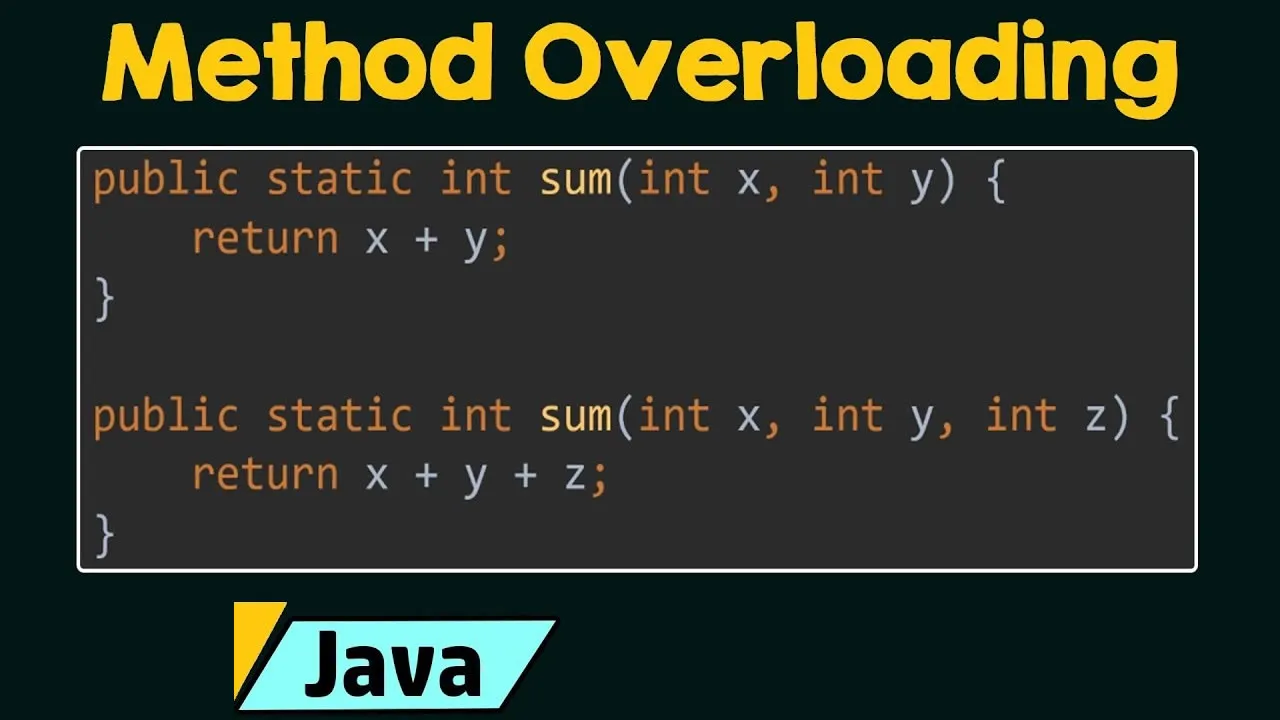Java Method Overloading - Explained with Examples
Optimize code versatility with Java method overloading! This guide, enriched with practical examples, empowers you to master efficient function polymorphism seamlessly.
Method Overloading
With method overloading, multiple methods can have the same name with different parameters:
Example
int myMethod(int x)
float myMethod(float x)
double myMethod(double x, double y)Consider the following example, which has two methods that add numbers of different type:
Example
static int plusMethodInt(int x, int y) {
return x + y;
}
static double plusMethodDouble(double x, double y) {
return x + y;
}
public static void main(String[] args) {
int myNum1 = plusMethodInt(8, 5);
double myNum2 = plusMethodDouble(4.3, 6.26);
System.out.println("int: " + myNum1);
System.out.println("double: " + myNum2);
}Instead of defining two methods that should do the same thing, it is better to overload one.
In the example below, we overload the plusMethod method to work for both int and double:
Example
static int plusMethod(int x, int y) {
return x + y;
}
static double plusMethod(double x, double y) {
return x + y;
}
public static void main(String[] args) {
int myNum1 = plusMethod(8, 5);
double myNum2 = plusMethod(4.3, 6.26);
System.out.println("int: " + myNum1);
System.out.println("double: " + myNum2);
}
Note: Multiple methods can have the same name as long as the number and/or type of parameters are different.
#java

2.95 GEEK